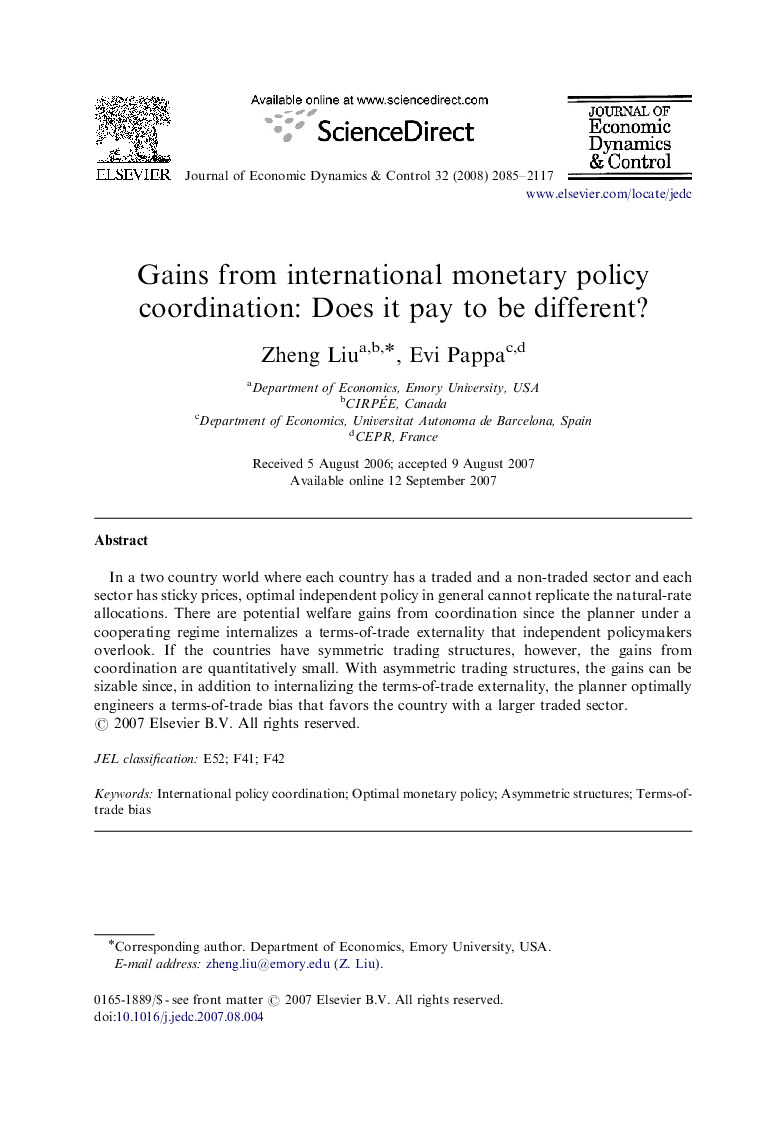| Article ID | Journal | Published Year | Pages | File Type |
|---|---|---|---|---|
| 5099395 | Journal of Economic Dynamics and Control | 2008 | 33 Pages |
Abstract
In a two country world where each country has a traded and a non-traded sector and each sector has sticky prices, optimal independent policy in general cannot replicate the natural-rate allocations. There are potential welfare gains from coordination since the planner under a cooperating regime internalizes a terms-of-trade externality that independent policymakers overlook. If the countries have symmetric trading structures, however, the gains from coordination are quantitatively small. With asymmetric trading structures, the gains can be sizable since, in addition to internalizing the terms-of-trade externality, the planner optimally engineers a terms-of-trade bias that favors the country with a larger traded sector.
Related Topics
Physical Sciences and Engineering
Mathematics
Control and Optimization
Authors
Zheng Liu, Evi Pappa,
